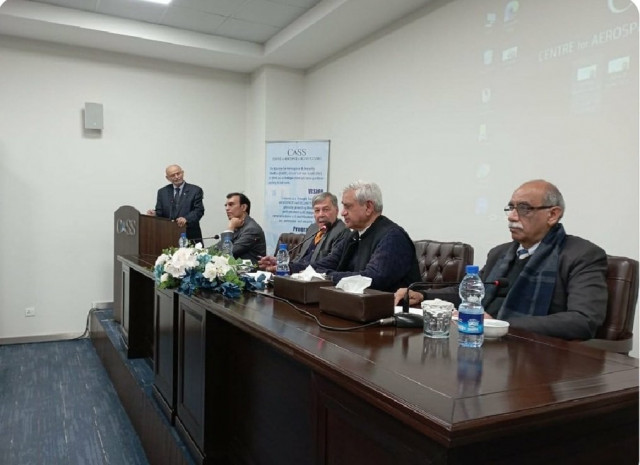Call for agriculture reforms, population control to ensure food security
Speakers say Pakistan failed to evolve high-yield crop varieties

The experts have demanded urgent attention from the government and key stakeholders to reform and modernise agriculture and control population growth to ensure food security, a sine qua non for country's national security.
This was the key message of the eminent speakers at the seminar on ‘Food Security for Pakistan’ organised by the Centre for Aerospace & Security Studies (CASS) on Thursday.
Former federal minister for national food security and research, Syed Fakhar Imam was the keynote speaker, while other eminent speakers included Sustainable Development Policy Institute (SDPI) Executive Director Dr Abid Qaiyum Suleri, former Federal Secretary for Water and Power Ashfaq Mahmood, Ambassador Shafqat Kakakhel and Chairman Board of Governors, Sustainable Development Policy Institute, Islamabad.
The seminar was concluded by President CASS Air Marshal Farhat Hussain Khan (retd), while Dr Ziaul Haque Shamsi, Director at CASS, moderated the proceedings.
In his opening remarks, Dr Shamsi highlighted that Pakistan being the fifth largest state in the world, and a predominantly agri-based society, was, unfortunately, facing serious concerns of food insecurity for various reasons.
This was especially concerning because efforts were in hand to improve farming processes through modern methods, better seed development and resource management.
Pakistan still had a long way to go in ensuring food security for its growing population at an affordable cost, he said.
In his keynote address on ‘Role of Agriculture Sector and Food Security in Pakistan’, Syed Fakhar Imam pointed out that national security, international security and food security were all interlinked and could not be separated from each other.
He lamented that of the five major crops, wheat was grown on 36% of the land which was where the problem lay. Unfortunately, Pakistan has failed to evolve high-yield crop varieties, he added.
Imam argued that despite having five major agri-universities and affiliated colleges, they were not at par with international standards and had outdated curricula.
Published in The Express Tribune, January 20th, 2023.



















COMMENTS
Comments are moderated and generally will be posted if they are on-topic and not abusive.
For more information, please see our Comments FAQ